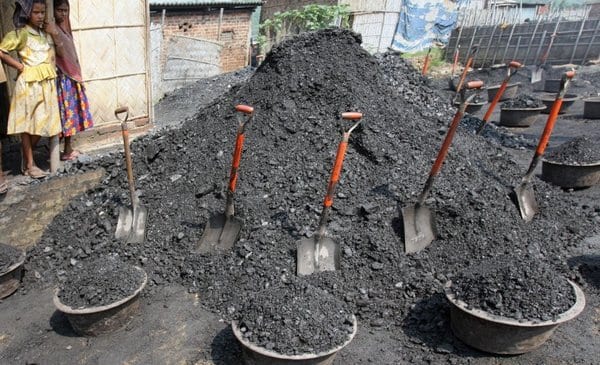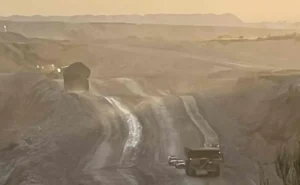There’s an argument within the fossil fuel industry that access to fossil fuels like coal and oil are necessary for developing nations to help pull themselves out of poverty. A new report released by Oxfam, however, warns that extracting more coal won’t help energy-poor countries build their economies, but instead will worsen global warming and entrench vulnerable communities in poverty.
The report, titled “More Coal Equals More Poverty,” argues that the vast majority of energy-poor households in developing countries lack access to a traditional electricity grid, meaning traditional energy sources like coal would do little to help bring electricity to those currently living without it.
Moreover, the report warns, extracting and burning fossil fuels like coal would release more greenhouse gas emissions into the air, worsening the impacts of climate change. And those impacts — increased heat waves, rising sea levels, and more variable growing seasons — will have an outsized impact on the world’s poor, many of which depend on subsistence farming for food and economic support.
To maintain a 50 percent chance of staying within 2°C of warming — the limit agreed upon in the Paris climate agreement — the report notes that 80 percent of the world’s coal reserves would need to remain untapped. That, in turn, means the world would have to quickly move away from coal power to low-carbon forms of energy, like wind and solar.
“Renewables are the clear answer to bringing electricity to those who currently live without it,” the report says. “The real cost of burning more coal will be measured in further entrenched poverty — through the escalating impacts of climate change and humanitarian disasters, increasing hunger and deaths and disease caused by pollution.”
The report was specifically aimed at the Australian government, which has been supportive of a proposed coal mine in Queensland, Australia; if built, it would be the largest coal mine in the country’s history. The federal resource minister has called the mine “great news,” and argued that it would help boost both regional and Australian economies.
The mine has run into some problems with funding, however, as at least 19 banks throughout the world have committed — either specifically or due to a company policy — to not finance the coal mine.
On Monday, Adani — the Indian company behind the proposed mine — postponed a final decision on the $16.5 billion project “indefinitely,” citing uncertainty over the royalties offered by the Australian government.
The government had previously been debating whether to offer an agreement that would have allowed the mine’s backers to pay just $2 million a year in royalties, which some economists argued could cost Queensland $1.2 billion in revenue.
The Oxfam report argues that Australia’s stance towards the coal mine is “fundamentally at odds with the global shift to renewable energy,” and ignores the opportunities for job and economic growth created by low-carbon technologies like wind and solar.
The report points to countries like India and China, which have pledged to greatly expand their renewable capacity in the coming years. China has promised to invest $360 billion by 2020 in renewable generation, and has seen its coal consumption steadily decline in recent years. In 2016, China also set a record for number of solar panels installed; it now expects to reach its goal for solar installations, originally set for 2020, two years early.
In India, where some 240 million people have no access to electricity, investors have been funneling money into renewable projects. Last year, India received a $20 billion dollar investment from Japan’s Softbank, and another $2 billion from the French energy company EDF, both aimed at expanding the country’s solar market.
And in December, the U.S. government’s development finance institution, the Overseas Private Investment Corporation (OPIC) announced a partnership with the Indian government to help finance renewable energy throughout India — though its unclear how that partnership will fare under the Trump administration, which has shown itself to be unfriendly to renewable investment.
The Oxfam report concludes by asking the Australian government to commit to no new coalmines, or coalmine expansions.
“A failure to break free from coal will harm our nation — leaving Australians with an expensive and unreliable energy system, stranded high-carbon assets, lost opportunities for new jobs and prosperity, and little to offer the rest of the world as it continues to transition away from fossil fuels,” the report says.
“Embracing renewable energy and smart climate solutions, both here and abroad, offers the promise of a brighter future for all.”











